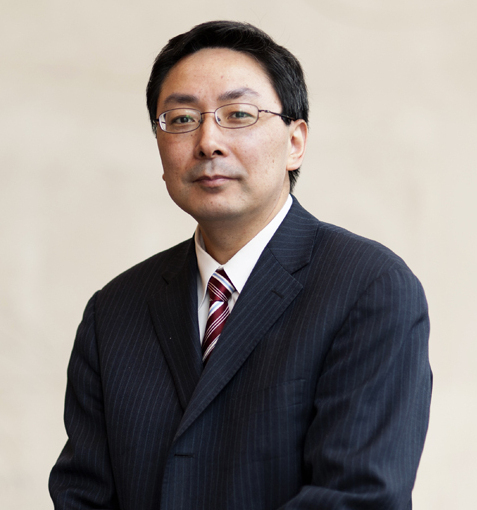Beijing, Pyongyang, and Seoul – Geopolitical Ramifications of the COVID-19 Situation in East Asia
- Interview
- June 28, 2022

- Yanzhong HUANG
- Senior Fellow for Global Health at the Council on Foreign Relations

In this interview, Yanzhong Huang, Senior Fellow for Global Health at the Council on Foreign Relations, discusses the geopolitical ramifications of the COVID-19 pandemic in East Asia, centered on developments in Beijing, Pyongyang, and Seoul. Dr. Huang notes that North Korea and China have initially been quite successful in enforcing their zero COVID-19 strategy. However, China’s strategy has led to a free fall of its economy; North Korea has undergone a rapid outbreak over the recent months, which may further deteriorate due to internal issues such as malnutrition. Furthermore, he states that North Korea’s rejection of South Korean and U.S. humanitarian assistance is reflective of the incorporation of great power competition in the global COVID-19 response, which has heavily politicized the process. Concerning prospects for South Korea’s humanitarian assistance towards the North, Dr. Huang suggests that the Yoon administration could integrate its offer into multilateral efforts, engaging not only international organizations, but also China.
I. Evaluation of China and North Korea’s COVID-19 Response
• Dr. Yanzhong Huang states that “North Korea seems to aware that the socio-economic impacts of the pandemic can be a much bigger problem (than COVID-19 itself).”
• Furthermore, China, in pursuit of the zero COVID-19 policy, “cannot tolerate any infections. This strategy has not only cost the Chinese “the free fall” of their economy, but also “heightened social discontent in China because of the lockdown measures.”
• He assesses that “North Korea seems to be doing a better job than China.” on the grounds that “China’s zero COVID-19 strategy is failing rapidly.” However, he highlights that in North Korea, “there are just so many unknowns.”
• To illustrate, official COVID-19 cases in North Korea “have reached more than 5 million,” which suggests that “20% of the population has been infected.” He also notes that the country may fall under greater peril, provided that “vaccination rates are very low,” and “the immunity level might be even further compromised because of the malnutrition problem.”
II. Implications of COVID-19 and Public Health Crises for the East Asian Geopolitical Landscape
• Dr. Huang states that the COVID-19 pandemic was the first time we’ve seen “ideology enter (the sphere of) the global pandemic response, when you frame the global pandemic response as a competition between liberal democracy, non-democracy or authoritarian systems.”
• He says that this explains why “North Korea turned to China for help ... and imported medical supplies from China,” which likely “strengthened ties between the two countries.”
• While the U.S. and China have had incentives to cooperate with each other, the “politicization of the pandemic over issues like the origins of the pandemic, whose political systems work better” led to “no serious conversation on cooperation.”
• However, Dr. Huang notes that the “crisis in North Korea highlights the need for the two countries (U.S. and China) to work together,” particularly over issues like nuclear proliferation.
III. Policy Recommendations for South Korea’s North Korea Policy
• Dr. Huang posits that South Korea “has managed to balance both the pandemic control and socioeconomic stability” and “has been very adaptive in responding to the new situation.” Despite a rapid increase in cases from the Omicron wave, “the health system remains robust enough to withstand the pressures” and “the death rate remains very low.”
• He argues that the South Korean government “has offered vaccines and aid to the North,” to which “the North essentially didn’t respond.” In order to stimulate the provision of humanitarian aid, Dr. Huang proposes that “it might not be a bad idea to place South Korea’s response or integrate this offer into multilateral efforts to help North Korea.”
• Additionally, he suggests that “South Korea could work with China to pursue common policies to promote peace and stability in the region.” For example, “South Korea could provide China with more effective vaccines and even therapeutic means to send medical supplies to North Korea through China.”
• He highlights that “South Korea could play an even more prominent role in U.S-China cooperation over global health security.” ■
※ Please cite accordingly when referencing this source.
IV. Biography
■ Yanzhong Huang_ Senior Fellow for Global Health at the Council on Foreign Relations. Dr. Huang directs the Global Health Governance roundtable series. He is also a professor and director of global health studies at Seton Hall University's School of Diplomacy and International Relations, where he developed the first academic concentration among U.S. professional international affairs schools that explicitly addresses the security and foreign policy aspects of health issues. He is the founding editor of Global Health Governance: The Scholarly Journal for the New Health Security Paradigm.
■ Typeset by Seung Yeon Lee, Research Associate
For inquiries: 02 2277 1683 (ext. 205) | slee@eai.or.kr